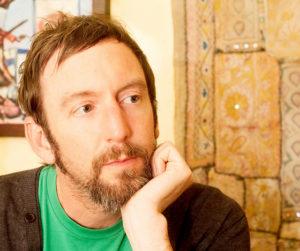We’re blessed with the most wonderful patients in the world. Because of them, we actively recommit ourselves each year – and then every day – to strive for perfect effort in all we do and settle for nothing less than excellence.
Our goal is to provide the best dental care possible. That only happens through creating real relationships with those who come to us for care – a concept at the core of our mission statement:
We are together
to enhance health and well-being
through relationships
based on
Understanding, Trust, and Excellence
in Care, Skill, and Judgment.
When we create healthy relationships with our patients, they feel understood. Feeling understood, they give us their trust. We can then provide our best in care, skill, and judgment.
This is the same kind of dynamic that we each can benefit from every day, in all of our relationships.
 Understanding is the foundation. As it says in Proverbs (4:7), “Though it cost all you have, get understanding.” Further (16:22), “Understanding is a fountain of life to those who have it.”
Understanding is the foundation. As it says in Proverbs (4:7), “Though it cost all you have, get understanding.” Further (16:22), “Understanding is a fountain of life to those who have it.”
And that starts with listening. That’s something more than just hearing. It means really taking in what another is telling you without preconceived notions, assumptions or judgment; hearing them out on their terms.
But as Stephen Covey notes, this isn’t the norm:
If you’re like most people, you probably seek first to be understood; you want to get your point across. And in doing so, you may ignore the other person completely, pretend that you’re listening, selectively hear only certain parts of the conversation or attentively focus on only the words being said, but miss the meaning entirely. So why does this happen? Because most people listen with the intent to reply, not to understand. You listen to yourself as you prepare in your mind what you are going to say, the questions you are going to ask, etc. You filter everything you hear through your life experiences, your frame of reference. You check what you hear against your autobiography and see how it measures up. And consequently, you decide prematurely what the other person means before he/she finishes communicating. Do any of the following sound familiar?
When you listen in this way – listening “to reply, not to understand” – you can never truly grasp what the other is telling you. Often, you wind up responding inappropriately, speaking out of your own self-concern or interest, not to the person’s actual needs.
Consequently, if we fail to understand others, how can we expect ourselves to be understood?
Our connections to others matter. In fact, those social connections we make are just as vital to our health and well-being as eating healthfully, practicing good hygiene, being active, getting enough good sleep, and all the rest of the things you do to keep your body, mind, and spirit healthy and whole.
Studies show that social relationships have short- and long-term effects on health, for better and for worse, and that these effects emerge in childhood and cascade throughout life to foster cumulative advantage or disadvantage in health.
* * *
Adults who are more socially connected are healthier and live longer than their more isolated peers…. Key research findings include: (1) social relationships have significant effects on health; (2) social relationships affect health through behavioral, psychosocial, and physiological pathways; (3) relationships have costs and benefits for health; (4) relationships shape health outcomes throughout the life course and have a cumulative impact on health over time; and (5) the costs and benefits of social relationships are not distributed equally in the population.
Here in the office, we do our utmost to create positive, understanding-based relationships with each of our patients – and among each other. We know that there are better outcomes for all and in all ways when we seek to be understood by understanding; to be trusted by trusting; to be cared for by caring for.
Do we always succeed? Of course not. We’re human. But when has that ever been a reason not to strive for perfection – in work or in life?
Through that striving, we intend to make this new year, 2016, a truly sweet ’16!
Image by David Goehring, via Flickr